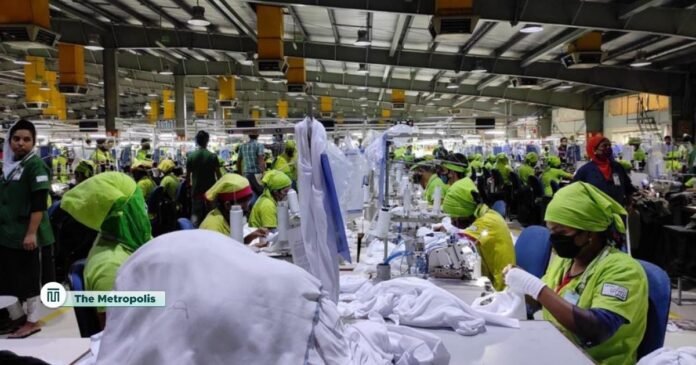Bangladesh’s economic growth is expected to grow by 5.1% in the current fiscal year, according to the Asian Development Bank (ADB). This is mostly because of supply disruptions brought on by political unrest in July and August of 2024.
The multilateral lender with headquarters in Manila had earlier predicted that, for the fiscal year (FY) 2024–2025, Bangladesh’s total output of goods and services would increase by 6.6%.
The ADB stated that, in light of the recent floods, it has revised down Bangladesh’s GDP growth estimate for the current fiscal year.
“Furthermore, tight fiscal and monetary policy is anticipated, which will further reduce demand for investments and consumption. The macroeconomic outlook is clouded by significant downside risks, making the forecast extremely uncertain, according to the ADB.
“These risks primarily stem from ongoing political instability, a fragile law-and-order situation, and vulnerabilities within the financial sector.”
The World Bank projected in June that Bangladesh’s economy would grow by 5.7% in FY2025, primarily due to rising investment from large infrastructure projects and rising private consumption as inflation began to decline. The ADB’s most recent estimate is lower than that estimate.
The ADB noted that high levels of inflation, stringent international monetary policy, and other macroeconomic issues continued to restrain demand.
“High prices for commodities and energy, as well as currency depreciation, have kept inflation high.” Both exports and imports decreased, and the current account deficit shrunk, according to the ADB.
The group went on to say that inflation might reach double digits.
“Restoring and maintaining macroeconomic stability will depend on accelerated reforms to increase revenue for a better fiscal balance, stabilise the financial sector through improved interest and exchange rate policies, and diversify the economy,” the Asian Development Bank stated.
Bangladesh experienced less than 6% growth in the last two fiscal years (FY2023 and FY2024) due to chronic inflation, ongoing pressure on the external accounts, a decline in imports, and slow private investment.
Prior to this, the government set an ambitious goal of 6.75 percent GDP growth for FY2025, a goal that analysts have deemed unrealistic considering the continuous difficulties facing the economy.
Create an account
Welcome! Register for an account
A password will be e-mailed to you.
Password recovery
Recover your password
A password will be e-mailed to you.
17.5
C
New York
Tuesday, June 17, 2025
The Metropolis is an online podium for journalism, presenting stories behind stories. The new breed of digital newspaper taps into possibilities and reflects on solutions. The boom of digital journalism has made shareable items sprout and bitesize contents mushroom. But, the depth and dimension gap is still wide open. That’s where The Metropolis, a news and content portal, makes a difference, delivering facts to inform, inspire, and include.
Contact us: themetropolisreport@gmail.com
© Copyright - The Metropolis by Reactron Global



